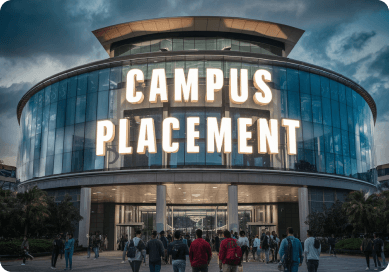Enter OTP



Berlin, Germany

Berlin, Germany

Hochschule fur Musik Hanns Eisler is a selective institution with low acceptance rate and offers affordable tuition fee structure. The university is also home to large number of international students with two thirds of its student body comprising of students from abroad.
Hochschule fur Musik Hanns Eisler also hosts over 300 public events annually allowing its students to showcase their talent. The university also partners with a number of renowned orchestras of Berlin in addition to three opera houses in the city.
Russian operatic soprano known for lyric and coloratura roles in Rossini and Mozart operas .
Renowned German conductor; currently Generalmusikdirektor of the Berlin State Opera and chief conductor of the Staatskap... View More
Renowned German conductor; currently Generalmusikdirektor of the Berlin State Opera and chief conductor of the Staatskapelle Berlin.` View Less
Russian-British conductor; celebrated music director of the London Philharmonic Orchestra .
Austrian-British lyric soprano treasured for her nuanced interpretations in early and contemporary repertoire .
Argentine cellist with French-Russian heritage; internationally acclaimed soloist and educator .
German countertenor with a distinctive rich timbre; decorated recipient of the Order of Merit of Berlin.
German composer and opera director; founder of the Kammeroper Schloss Rheinsberg and composer of notable contemporary op... View More
German composer and opera director; founder of the Kammeroper Schloss Rheinsberg and composer of notable contemporary operas. View Less
Composer and educator; pioneer of electronic music in the GDR and founder of its first electronic-music studio .
The university operates from two prominent historical buildings in Berlin’s Mitte district: the Charlottenstraße location across from Konzerthaus Berlin, and the Neuer Marstall at Schlossplatz added in 2005 . It boasts state-of-the-art facilities including recital halls, rehearsal rooms, sound and recording studios, electronic music labs, video and computer rooms, and health-focused institutes like the Kurt‑Singer‑Institut and Klangzeitort for contemporary music exploration.
More than 400 annual public events—from ensemble concerts and masterclasses to opera workshops and exam recitals—form the core social and academic life. These are held in partnership with prestigious venues like Konzerthaus Berlin and Berlin Philharmonic, alongside student-led “Collage Concerts” and midday “Klassik um Eins” recitals . Additionally, welcome weeks and e‑campus platforms foster community integration,


Through a Creative Career Center, students undergo “Future Skills” workshops (time management, project planning, self-marketing). They also have access to UdK’s Career & Transfer Service Center, along with alumni networks and partners like the Förderverein, which provide funding for masterclasses, competition travel, and startup projects . For those seeking part-time work, guidance on student-employment rights (“working student privilege”) is available via studierendenWERK Berlin.
The below information is required while
completing the university application :
Educational Qualification
Must have completed secondary education equivalent to German Abitur or Matura (high school graduation).
Pre-selection via audition recordings
Submit video/audio samples via the muvac platform for pre-selection
Recordings should be live, unedited, up-to-date (<1 year old), with clear visibility and memory performance .
Audition Exam
Two-round process for most majors: first round audition, then specialized second round .
Performance repertoire requirements vary by instrument (e.g., piano: baroque polyphony, sonata, virtuosic étude, sight-reading) .
German Language Proficiency
Foreign applicants need certification at CEFR B2.2 level, demonstrated through certificate and music-theory exam .
If insufficient, required to attend an intensive pre-semester German course .
Enrollment Documents
Following acceptance, submit proof of health insurance, a German/SEPA bank account, and certified academic certificates/transcripts .
Application Deadlines
Winter semester: Feb 15 – Apr 8; Summer semester: Oct 1 – Nov 8 .
Application fee: €60 non-refundable
Know moreUnlike typical job placement, recruitment occurs through artistic engagements—auditions, competitions, masterclasses—and partnerships with orchestras, opera houses, festivals, and concert institutions. Alumni regularly secure positions at reputable venues and in academia.



Hochschule fur Musik Hanns Eisler is ranked 182nd nationally by the UniRank university rankings and has been accredited by several government and professional bodies including the Senate Chancellery for Science and Research of Berlin.
Hochschule fur Musik Hanns Eisler is also ranked amongst top 26% universities in the world by EduRank university rankings and 239th in the country by Webometrics University Rankings.


Alumna Sueye Park (graduate of Hanns Eisler) captured the top prize and a €30,000 award at the prestigious Sibelius Competition in Helsinki, alongside a loan of a historic Guadagnini violin .
Yet another honor bestowed upon Gruppe Neue Musik Hanns Eisler in recognition of their groundbreaking work in modern music, shortly before the ensemble’s disbandment .
The Gruppe Neue Musik Hanns Eisler received this prestigious Leipzig art prize for their outstanding contributions to contemporary chamber music, including premieres by European composers.
Awarded to the Gruppe Neue Musik Hanns Eisler—a contemporary music ensemble affiliated with the institution—in recognition of their pioneering performances and expansion of avant-garde repertoire in East Germany.
Kurt‑Singer‑Institut (since 2002): Focuses on musician health and physiology .
Institut für Neue Musik / Klangzeitort (since 2003): Dedicated to contemporary music and sound research, with electronic music studios and regular festivals .
Composer’s Forum & Performance Prize: Annual award fostering contemporary composition since 1993 with prizes up to €2,500.
Boris‑Pergamenschikow‑Prize (biennial, since 2005): €10,000 award for chamber ensembles
Launched a specialized center for “new music” research, including advanced electronic and spatial sound design, avant-garde composition, and modern performer-instrument interactions .
Introduced groundbreaking inter-disciplinary research into musicians’ physical, psychological, and ergonomic health—innovative in bridging music and medical sciences .
Georg Katzer, a student of Hanns Eisler and later professor, established the first electronic‑music studio within the German Democratic Republic. This launched comprehensive new-music research and production at the institution.

Embark on your educational journey with confidence! Our team of admission experts is here to guide you through the process. Book a free session now to receive personalized advice, assistance with applications, and insights into your dream school. Whether you're applying to college, graduate school, or specialized programs, we're here to help you succeed.
